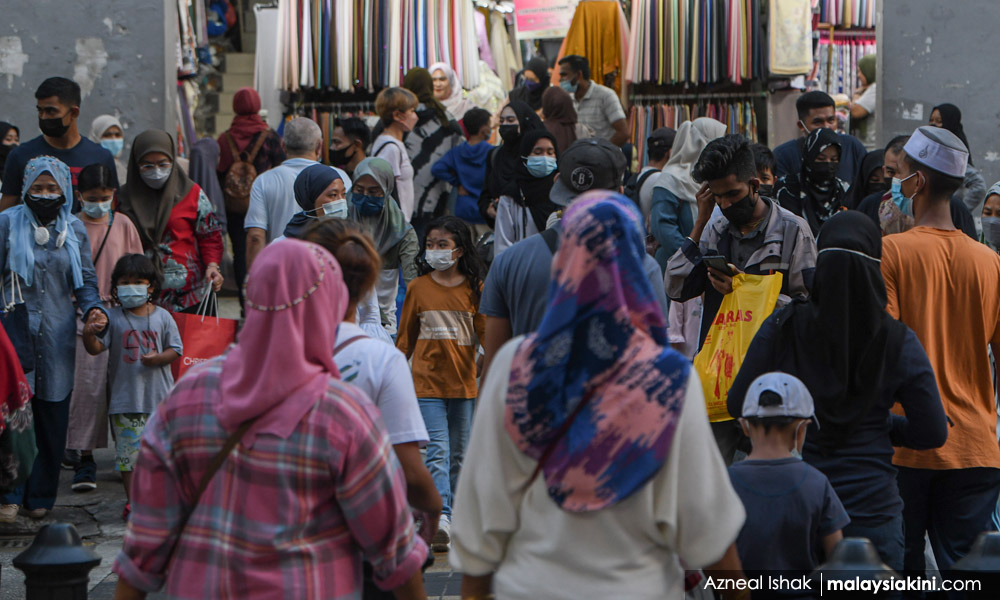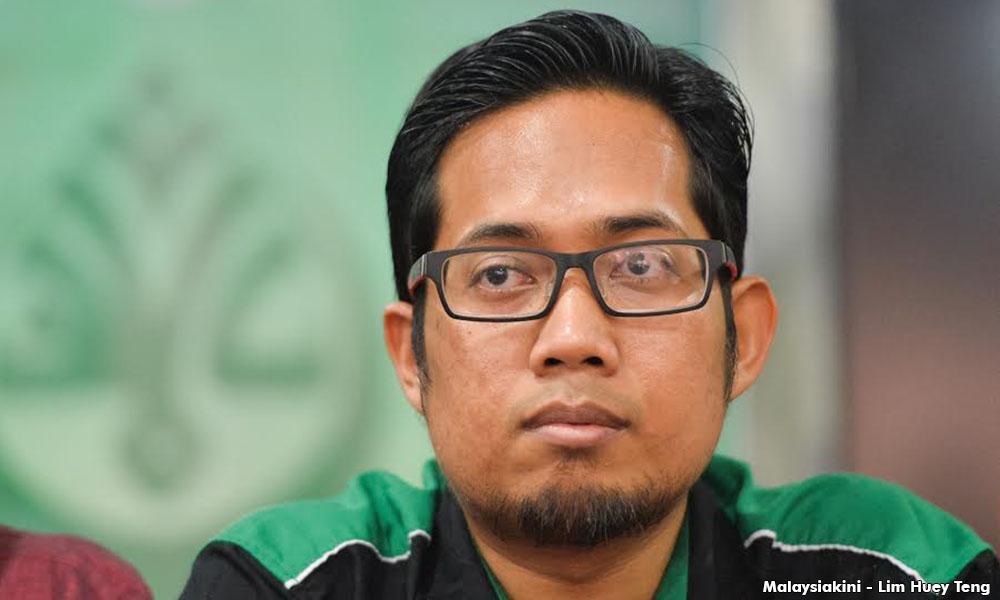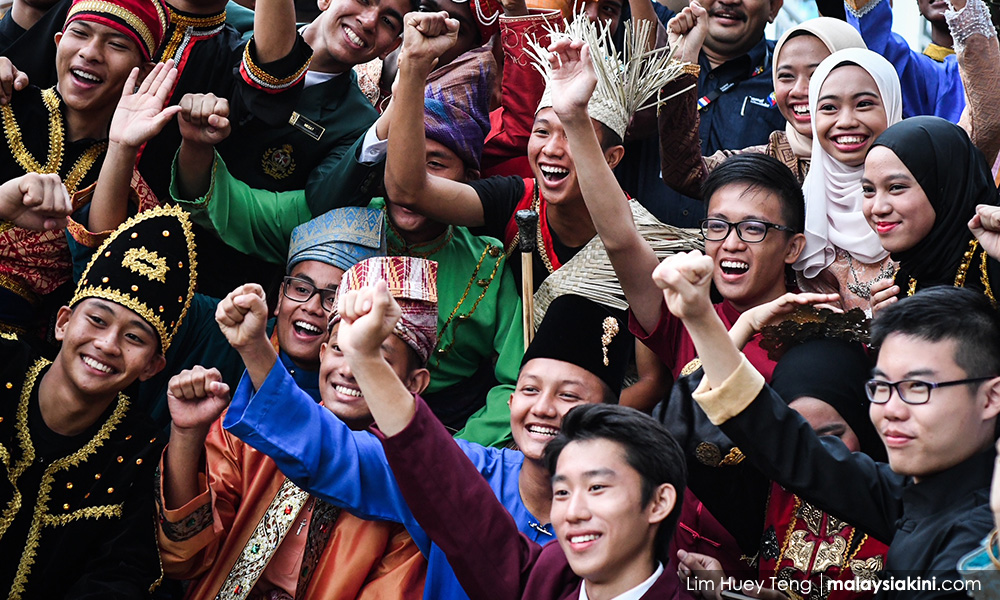Our recently celebrated Malaysia Day commemorates something quite interesting.
There are very few instances in history where different territories come together to form a new country.
It is likely that the opposite is more common: where a single country breaks up to form separate entities.
For me, the momentous coming together of Malaya, Sabah, Sarawak, and our long-lost sibling Singapore is an even more significant event than Merdeka itself.
‘Coming together’ is a great theme for Malaysia Day itself, especially given how fragmented and divided we have become as a nation. One of these big divisions is of course within the original constituents of Malaysia itself - Malaya, Sabah, and Sarawak.
We have so much work to do to ensure that the people of Sabah and Sarawak feel that being part of Malaysia is a positive and beneficial thing, as opposed to what may be a more negative prevailing sentiment.
Race and religion
Today’s article, however, will focus a little more on the fragmentations within Malaya itself.
On the peninsula, of course, the prominent fault lines are those of race and religion. The narrative is often inaccurately oversimplified into a Malay-Chinese-Indian narrative; our realities are of course a lot more textured, nuanced, and complex than that.

That said, this dynamic - or more generally the one between Malay/Muslim and non-Malay/Muslim - is a predominant one in the peninsula, and one which has implications throughout the federation.
I have long held that finding success in bringing together these separate groups is unlikely to come from the top.
Various politicians over the years have been entrusted with this task, and some have even made genuine efforts to try and bridge the gaps.
Much more often than not, however, internal and partisan interests seem to cripple and sabotage these efforts.
I find that there are many more interesting initiatives and efforts coming from civil society.
This isn’t to say that civil society is immune from the divisions that affect society more generally. Even in civil society, there are silos, divisions, and fault lines that are also divided by race, religion, and language.
That said, it feels like there are greater efforts within this space to bridge that gap.
Typically, we tend to talk about people who are more like us to people who are more like them. This is understandable, but in my own writing, I try to use whatever small platform I have to introduce more English speakers to developments and movements within the Malay-Muslim space.
Bridging the gap
This last Malaysia Day weekend provides an excellent opportunity to discuss two such examples of how Malay-Muslim civil society organisations are working to bridge the gap.
On Malaysia Day itself, Ikram held the delightful ‘Karnival Kami’, while the Muslim Youth Movement of Malaysia (Abim) held its annual general assembly over the whole weekend.
‘Karnival Kami’ was a fun-filled day-long celebration of Malaysia Day which was held at UTM Kuala Lumpur. The first thing I saw upon reaching was the bouncy castles. I wanted to partake, but I had a feeling most people would have found that odd.
The day was filled with games, food, and entertainment.
Most importantly, however, Ikram made a special effort to invite various other multiracial and multireligious civil society organisations to be part of this carnival, by setting up booths and taking part in performances.
There was a booth by Gerakan Belia Se-Punjabi Malaysia (GBSM) which allowed people to try and play Sikh musical instruments.
Right next to it was a booth set up by the Lim Lian Geok Foundation and the KL Selangor Chinese Assembly Hall which allowed people to try out Chinese calligraphy, and even had a chopsticks challenge!
When I was there, there was also a speaker in the main hall who was giving a talk on sexual harassment.
I think these initiatives are great efforts by a civil society organisation - one that is faith-based and very Malay/Muslim in its base - to reach out and ensure that their programmes are inclusive and representative.
This is in contrast with how many Malaysians perceive such groups.
Policy speeches
At Abim’s AGM, its president Muhammad Faisal Aziz delivered his policy speech entitled ‘The Future of Civilisational Cosmopolitan Islam: Building Optimism in the New Generation’.
In it, Faisal continued to build on a number of themes that he has consistently pushed in his policy speeches over the years.
One of these was the concept of Cosmopolitan Islam. Here, Faisal has been emphasising that Islam, especially in its growth and development in our region, has always been cosmopolitan and universalist in nature.
He gave many historical examples of how Islam was open and inclusive at various points in its history, including in its earliest days.

He described Cosmopolitan Islam as “being open to accepting the diversity of different communities, recognising local wisdom, as well as establishing mutual interaction with the outside world”.
Faisal spoke of how adhering to the true attributes of good Muslims requires a community to be ‘Umah Wasatiyah’ - which can be translated as a community of moderation.
In expounding on the concept of moderation in Islam, Faisal quoted the work of scholar Kamal Hassan: "The essence of Islamic moderation is the attainment of justice and moral excellence, and the avoidance of extremes and injustice which may or may not cause unnecessary hardship or burden oneself or others...
“The scope of Islamic moderation includes a combination of inclusive virtues of justice, goodness, tolerance, cooperation, obedience to the just Muslim ruler, inter-religious dialogue, honouring of agreements, and acceptance of cultural or ethnic diversities and the attitude of optimism.”
Lastly, Faisal also spoke on the concept of Bangsa Malaysia, which Abim has been building for about half a decade now.
In this year’s speech, Faisal spoke on how we need to define and consolidate what our common national values of Bangsa Malaysia should be, and how these Bangsa Malaysia values can serve as a strong moral compass for the nation as a whole.
At the end of the session, Abim vice-president Adli Zakuan led the attendees in three rousing cheers.
Some might have expected a Malay-Muslim-based group to only cheers that are exclusive and narrowly focused, but everyone in the hall full throatily answered the call to ‘lawan’ (fight) three things - perkauman (racism), penindasan (oppression), and pembodohan (stupidification).

It is a bit unfortunate that the efforts of groups like Ikram and Abim do not always enter into mainstream discourse.
We seem to jump and get ourselves into a huff every time some half-past-six politician says something ridiculous, but pay little heed to grassroots leaders representing large civil society organisations when they talk of Islam and Malaysian-ness in a way that is actually open, inclusive, and wholesome.
Of course, we may not agree on every single matter, but what these groups are doing opens up a great opportunity and space to define and build upon common ground.
Hopefully, more Malaysians will become aware of these efforts, and answer the calls to bridge our decades-old divides. - Mkini
NATHANIEL TAN works with Projek #BangsaMalaysia. He can be reached at nat@engage.my.
The views expressed here are those of the author/contributor and do not necessarily represent the views of MMKtT.




No comments:
Post a Comment
Note: Only a member of this blog may post a comment.